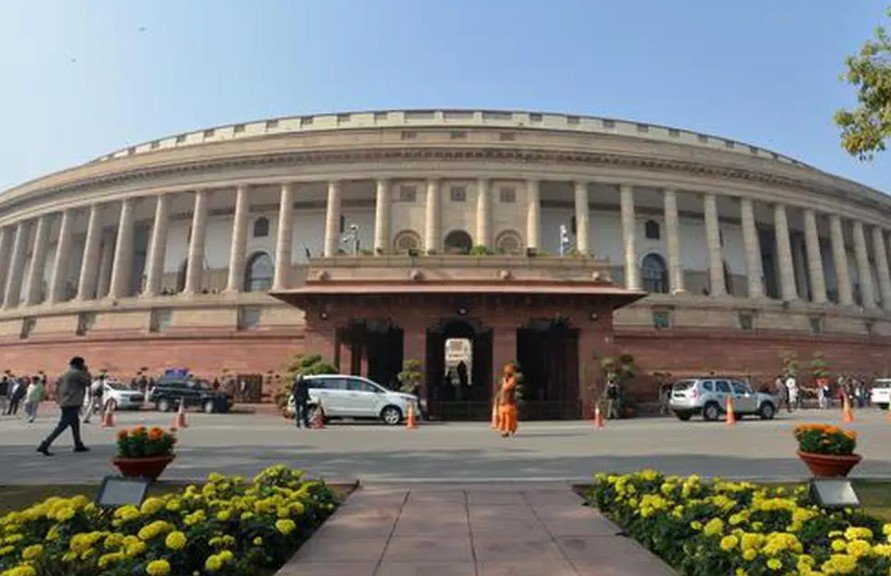India is planning to scrap the controversial 6% equalisation levy — widely known as the Google tax — on online advertisement services from April 1. The move comes just a day before US President Donald Trump’s retaliatory tariffs on nations with digital taxes kick in, setting the stage for a high-stakes trade standoff.
A Strategic Tax Rollback
Finance Minister Nirmala Sitharaman introduced the proposal as part of 59 amendments to the Finance Bill in Parliament on Monday. The tax, originally aimed at ensuring global tech giants like Google and Meta contribute a fair share to India’s digital economy, has become a diplomatic flashpoint.
For India, the timing is everything. Trump has made it clear that digital taxes targeting American tech firms won’t go unanswered. His administration has vowed to hit back with tariffs on exports from countries imposing such levies — a threat that hangs over key Indian sectors like textiles, pharmaceuticals, and auto parts.

This tax reversal isn’t just about avoiding tariffs. It’s also a nod to India’s growing digital ecosystem. By easing the burden on global platforms, New Delhi may be hoping to attract more investment in its tech sector.
Why the Tax Existed in the First Place
The equalisation levy, introduced in 2016, targeted foreign companies profiting from Indian consumers without a physical presence in the country. It initially applied to online ad services, later expanding to cover e-commerce transactions.
For years, Indian officials defended the tax as necessary to level the playing field for local businesses competing against global giants. Domestic firms argued they faced higher corporate taxes while foreign platforms bypassed traditional tax structures.
But the levy drew international criticism, particularly from Washington. The US Trade Representative labeled it discriminatory, claiming it unfairly targeted American tech companies. Despite diplomatic back-and-forth, India held its ground — until now.
The Trump Factor
President Trump’s tariff threats are hard to ignore. His administration has been relentless in protecting US companies from what it sees as unfair taxation overseas. Several countries, including France, have faced similar pressure and backed down or delayed their digital tax plans.
India’s economic ties with the US are crucial. Bilateral trade surpassed $190 billion last year, with Indian exports to the US accounting for over $77 billion. A tariff war could hit Indian businesses hard, especially in sectors already grappling with global economic uncertainties.
Trump’s stance may be controversial, but it’s effective. With the clock ticking toward April 2, India’s decision to pull the plug on the Google tax looks like a calculated attempt to keep trade talks from derailing.
What This Means for Big Tech
For companies like Google, Meta, and Amazon, this is a win — at least for now. The tax rollback could ease operational costs and improve margins in one of the world’s fastest-growing digital markets.
However, the bigger question remains: what happens next? India still needs a framework to tax digital giants fairly without triggering international backlash. The Organisation for Economic Co-operation and Development (OECD) has been pushing for a global tax agreement to tackle this issue, but progress has been slow.
Meanwhile, Indian startups and smaller tech firms might feel abandoned. Many saw the equalisation levy as a way to curb the dominance of US giants, giving homegrown platforms a fighting chance.
Balancing Growth and Diplomacy
India’s move is a reminder of the tightrope countries walk between fostering domestic growth and keeping powerful trade partners happy. The tax cut may calm tensions for now, but it also underscores the complex dynamics shaping global digital economies.
While the Finance Bill’s amendments aim to address tax disputes and ease offshore fund relocation, the spotlight remains on the US-India relationship. With elections looming in both countries, the political landscape could shift again — and fast.
For now, one thing’s clear: the battle over digital taxes is far from over. India’s latest maneuver buys time, but the bigger fight for a fair, global tax structure is only heating up.
